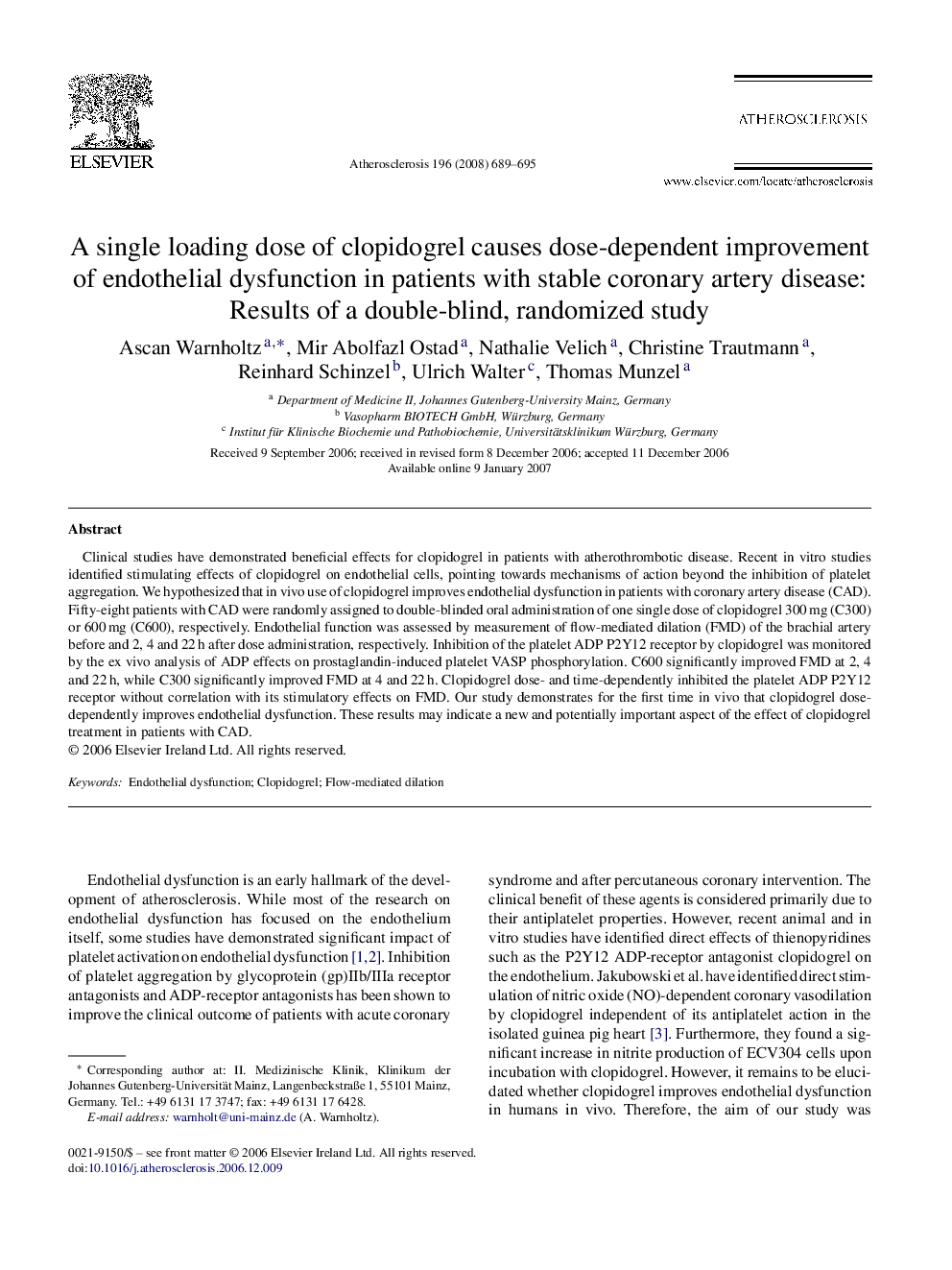| Article ID | Journal | Published Year | Pages | File Type |
|---|---|---|---|---|
| 2894037 | Atherosclerosis | 2008 | 7 Pages |
Clinical studies have demonstrated beneficial effects for clopidogrel in patients with atherothrombotic disease. Recent in vitro studies identified stimulating effects of clopidogrel on endothelial cells, pointing towards mechanisms of action beyond the inhibition of platelet aggregation. We hypothesized that in vivo use of clopidogrel improves endothelial dysfunction in patients with coronary artery disease (CAD). Fifty-eight patients with CAD were randomly assigned to double-blinded oral administration of one single dose of clopidogrel 300 mg (C300) or 600 mg (C600), respectively. Endothelial function was assessed by measurement of flow-mediated dilation (FMD) of the brachial artery before and 2, 4 and 22 h after dose administration, respectively. Inhibition of the platelet ADP P2Y12 receptor by clopidogrel was monitored by the ex vivo analysis of ADP effects on prostaglandin-induced platelet VASP phosphorylation. C600 significantly improved FMD at 2, 4 and 22 h, while C300 significantly improved FMD at 4 and 22 h. Clopidogrel dose- and time-dependently inhibited the platelet ADP P2Y12 receptor without correlation with its stimulatory effects on FMD. Our study demonstrates for the first time in vivo that clopidogrel dose-dependently improves endothelial dysfunction. These results may indicate a new and potentially important aspect of the effect of clopidogrel treatment in patients with CAD.
